Strictly Personal
‘Jagba’ and the 2023 elections by Lasisi Olagunju
Published
1 year agoon
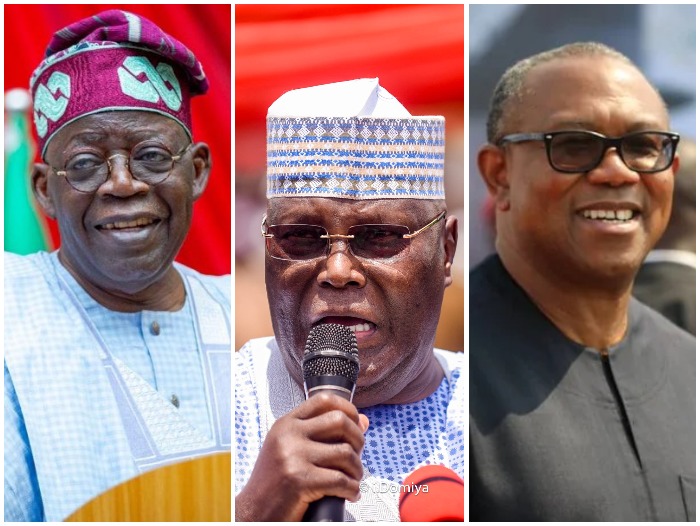
HOW to Rig an Election is one of the newest books in my library. I have all sorts of friends with a taste for weird writing. One of them, Tayo Koleoso from Saki, Oyo State, but based in the United States, bought and sent a copy of that book to me two weeks ago. “You must read it,” he ordered. I have tried to obey him. Authored by Nic Cheeseman and Brian Klass, it is a handbook on the politics of electoral malfeasance; it also teaches how to subvert subversion in democratic politics. Some books are bad and good in equal measure, from cover to cover. Cheeseman and Klass remind me of Edward Luttwak’s ‘Coup d’etat: A Practical Handbook’ – a 1968 work that is so graphically brutal to the extent that the author likens it to “a cookery book” for laymen to make sumptuous soups. The New Yorker describes the book as “wicked, truthful and entertaining”; its publishers say it shows “step by step how governments could be overthrown” but has also “inspired anti-coup precautions around the world.” Cheeseman and his partner teach “five new ways to rig an election – and ten ways to stop it.” Those two books complement each other.
How to rig an election is synonymous with how to seize a government. From political rhetoric to policy conception and execution, it is difficult not to hold that Nigeria’s rampaging husbands are reading some really bad books. Paul Collier, author of ‘Wars, Guns and Votes’ read ‘How to Rig an Election’ and lamented that elections in many countries were increasingly becoming a sham and the problem getting worse. He accused the international community of conniving “at being deceived” while democracy suffered violence around the world. Elaine Glaser of Times Literary Supplement made a comparison between “historic autocrats who boosted their status by bumping off their opponents” and modern dictators who boost their own status “by holding cosmetic, compromised elections.” We have them in Nigeria as our ‘democracy’ grows tumors.
‘Jagba’ is a Yoruba action word; ‘snatch it’ is approximate in English. It is a desperate, battle-cry word in elections where the stakes are high as in the coming polls. A candidate hammers it into the skulls of his supporters that power is the end that matters in politics, and that they must, at all costs, grab it, snatch it and run away with it. When you hear that with a full complement of applause from excited subalterns, please know that democracy has put on the autocrat’s jackboot. It is no longer a government of the people by the people. A cutlass that has two sharp edges is no longer a cutlass; it has become a sword.
The APC presidential candidate, Bola Tinubu, gave that grab-seize-and-run order last week. Tinubu, in a video recorded in London, is shown telling a gathering of APC leaders and supporters that, “Political power is not going to be served in a restaurant. It is not served a la carte. At all costs, fight for it, grab it, snatch it and run (away) with it.” That is a new addition to power rhetoric. I’ve heard and read “real power is not given, it is taken.” There is also the phrase: “power wears out those who don’t have it.” Both are uttered in the film, ‘Godfather III’. The Godfather’s creator was too self-restraining and temperate to use ‘snatch’ and ‘run.’ I watched and listened to the Tinubu video one, two, three times and couldn’t close my mouth. The man waxed sure-footedly audacious. The video is viral online. He has not denied being the one in it. What Tinubu said is, however, not exclusive to him and his party. It is a frothing broth on all fires; a conversation that straddles nights and days in all political parties and circles. The year 2023 is about snatching and running. They all plan it. The APC candidate was only caught saying it because he was too big to care; he was careless.
Snatching, grabbing and running away with election victory and ‘power’ are acts of coup making. Snatchers must never be offered a seat in a democracy. But across all parties, the resolve to “snatch it” is palpable. In the South-West, they call it jágbà – the literal translation is what the APC warlord said in London: the entire statement, the three sentences. Democracy dies where politicians become so powerfully self-assured that they know (and say it) that they will be elected even if the whole world says no. That scenario sounds Hitleric. It was Adolf Hitler’s belief – and he espoused it – that ‘the party’ must “not become a servant of the masses, but their master!” Ruling parties get that big in Nigeria – and they constrict and choke the people with it. There was the Northern People’s Congress (NPC) in the first republic; the National Party of Nigeria (NPN) was the people’s master during the second republic; the PDP was the undisguised lord until 2015. The APC is the reigning master of the masses, and its Lordship wields the whip with unpretentious impunity. The party speaks with tones of terror and force. We hear stuff like: “we will win; we have even won. If they like, let them jump into the sea.” Talks like that shame and degrade democracy; they taunt trouble.
Whatever is happening (and may still happen) to our democracy is straight from old, notorious rule books of autocracy. Hitler prescribes “terror and force” as the means to an easy defeat of reason. ‘Reason’, according to Oxford Languages, is the “power of the mind to think, understand and form judgements logically.” Now, think of a “force” or an act of terror powerful enough to destroy a people’s will with all its judgmental properties. That is what ‘jágbà’ (snatch it) does to people’s faith in constitutional democracy. The voter stops thinking; he stops asking questions; he refuses to understand anything again about the future. He asks why he must waste his time asking questions and, even voting, when the end is known even before the start whistle is blown.
Snatching and grabbing and running is a kinetic race that can only go to the fittest. Survival of the fittest defines not democracy but its very opposite. It is a bad political behavior like cancer; it may be forced into some form of remission, but it will be back soon – metastasised, more ferocious, deadlier. The more subversion in electoral politics is tackled, the stronger it comes back in new forms. And that is because old dogs always devise new ways to eat fresh bones. In the first republic, politicians in power were brazen. They shut out their opponents from the process; they framed up and locked up some; they prevented others from submitting their nomination forms. They then declared themselves elected unopposed. They were more confident and creative in the second republic. On March 14, 1983, the governorship candidate of the Unity Party of Nigeria (UPN) and incumbent governor of Oyo State, Chief Bola Ige, said in Ibadan that he was surprised to discover that he was registered as a ‘female’ in the voters register. Was that a clerical error or an audacious act of detestosteronization of a political stallion? We may not know; but we know that because the Ige side stood on terra firma too, the issue was soon fixed. How? Ige is dead but his then press secretary, Lekan Alabi, is alive and well in Ibadan as a very high chief. You can ask him for details.
You’ve heard of INEC’s brag about a foolproof, rigging-free 2023 elections. Its optimism is rooted in technology- its deployment of the Bimodal Voter Accreditation Systems (BVAS). But assurances and optimism are rarely safe routes to success – especially in electoral politics. I think vigilance is. Cheeseman and Klass cry that the dictator in politics expands his toolbox continually: “Every time we work out a new way to detect and deter one type of rigging, a new one emerges.” This past Friday, the American National Democratic Institute (NDI) and International Republican Institute (IRI) released a report on Nigeria’s coming elections. They said the report was based on the completion of a second pre-election assessment mission as part of their joint observation of Nigeria’s 2023 general elections. The delegation said it “heard reports that some politicians were seeking to discredit the use of BVAS, as a means of sowing doubt about the credibility of the electronic voter accreditation and results transmission processes, in an effort to return to manual processes which are prone to manipulation.” Now, is it a mere coincidence that the persons who spoke about snatching and running away with power are the ones expressing ‘reservations’ about BVAS in the coming elections? Read the lips of the Americans. They also spoke about a “significant increase in electoral violence, often targeting INEC facilities, election materials, opposing candidates, party supporters and women leaders…and (the) pervasive role of money in politics in Nigeria, and the lack of accountability for electoral offences, including vote buying.” They warned that “if the 2023 elections fail to deliver on citizen expectations of credible and inclusive polls, the confidence of Nigerians in their government and elections, which is already the lowest in Africa, may further erode, and there are concerns about the potential for significant post-election violence.”
Scary? No, not scary; deja vu is the applicable feeling and reaction here. All those infractions listed by the Americans are not strange in our political history. Every election cycle, we expect them and prepare for them. They were in our past and the repercussions leave life-long scars in the lives of the country. But because we learn in the breach, the behaviour that sentenced Dog to a night of hunger is the exact scheme in our husbands’ plan to ‘jágbà’ and run home with the spoils of politics. I have read the PDP and its presidential candidate, Atiku Abubakar, condemning Tinubu’s snatch-it rhetoric. The intriguing thing is that all parties plot to ‘jágbà’; they all also plan against ‘jágbà’. It will be a tumultuous, riotous ring of bouts and scramble for power going forward.
So, what results will be announced at the end of this exercise? I have no answer, but I will ask if those playing God have heard of ‘Stroke of God’s Hand’ before. It is that ‘thing’ that can only be attributed to power out of human control. In medicine, ancient professionals repeatedly saw a condition that was sudden and devastating and could explain it in no other way than to place its cause and effects at God’s doorstep. They called that illness ‘Stroke of God’s Hand’. It was in the sixteenth century that medical experts shortened it to ‘stroke’ – the master stroke. A 17th-century French writer, Gabriel Naude, appropriated and conflated the master-stroke idea into politics and wrote about an end-time when: “…the thunderbolt falls before the noise is heard in the skies…(and) he receives the blow that thinks he himself is giving it, he suffers who never expected it, and he dies that look’d upon himself to be the most secure.” Naude concludes that “all is done in the night and obscurity amongst storms and confusion” (Luttwak: 2016: xxxiv).
So, if the rush to the 2023 prize remains a game without rules as the horses are playing it, what do you think will happen to the trophy? Have you watched a WhatsApp video of famished women in a northern Nigerian village riotously scooping food from a pot on the fire? It is a scene of confusion and desperation: What one scoop is snatched by a more vicious other; every plate is a ladle that everyone uses and loses to a stronger grabber. The ground is littered and fed with what the strugglers crave, yet no one could call the scramblers to order. In the background are cries of children traumatized by the mad world they see. In the end, the video ends suddenly as it appears everyone gets nothing to eat from that pot of greed.
You may like
-


Binance accuses Nigeria of setting dangerous precedent with detention of its executives
-


Nigeria to ban naira from crypto trading platforms
-
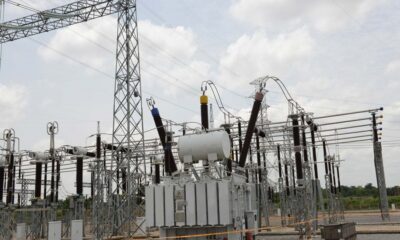

Nigeria reduces electricity sale to foreign customers to boost domestic supply
-


Nigeria not considering permitting foreign military bases— Information Minister
-


Nigeria: Manufacturers’ market access key to success of AfCFTA agreement
-


FX bank swaps account for 30% of Nigeria’s external reserves— Fitch
Strictly Personal
In 64 years, how has IDA reduced poverty in Africa? By Tee Ngugi
Published
11 hours agoon
May 7, 2024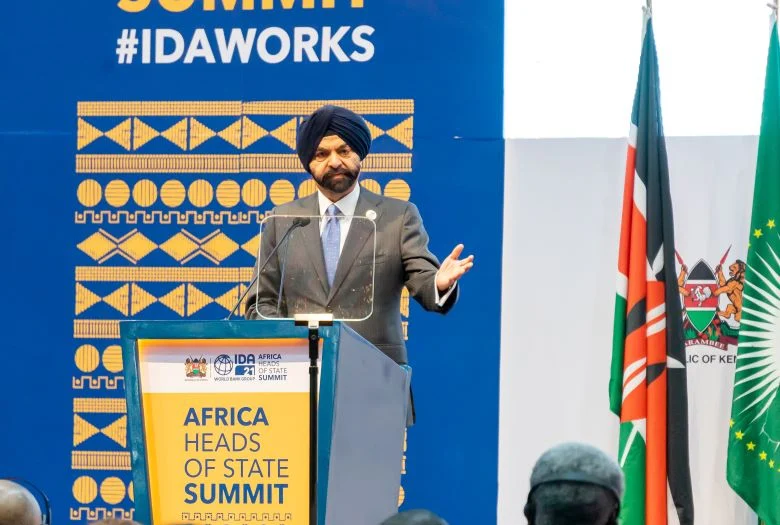
The name of the organisation is as opaque as a name can get: World Bank’s International Development Association (IDA).
I had never heard of it. And suppose I, who follows socioeconomic developments that affect Africa, had never heard of it until last week when it convened in Nairobi. In that case, likely, only a handful of people outside those who serve its bureaucracy had ever heard of it.
Maybe IDA intends to remain shadowy like magicians, emerging occasionally to perform illusions that give hope to Africa’s impoverished masses that deliverance from poverty and despair is around the corner.
So, I had to research to find out who the new illusionist in town was. IDA was founded in 1960. Thirty-nine African countries, including Kenya, are members. Its mission is “to combat poverty by providing grants and low-interest loans to support programmes that foster economic growth, reduce inequalities, and enhance living standards for people in developing nations”.
It’s amazing how these kinds of organisations have developed a language that distorts reality. In George Orwell’s dystopian novel, Nineteen Eighty-Four, the totalitarian state of Oceania devises a new language. “Newspeak” limits the thoughts of citizens of Oceania so that they are incapable of questioning whatever the regime does.
Let’s juxtapose the reality in Africa against IDA’s mission. Africa has some of the poorest people in the world. It contributes a paltry two percent of international trade. It contributes less than one per cent of patents globally.
The continent has the largest wealth disparities in the world. Millions of people across Africa are food insecure, needing food aid. A study has indicated that Africa is among the most hostile regions in the world for women and girls, because of residual cultural attitudes and the failure of governments to implement gender equality policies.
Africa has the largest youth unemployment rate in the world. Africa’s political class is the wealthiest in the world. Africa remains unsustainably indebted. The people who live in Africa’s slums and unplanned urban sprawls have limited opportunities and are susceptible to violent crime and natural and manmade disasters.
As speeches in “Newspeak” were being made at the IDA conference, dozens of poor Kenyans were being killed by floods. These rains had been forecast, yet the government, not surprisingly, was caught flatfooted.
So in its 64-year existence, how has IDA reduced poverty and inequality in Africa? How has its work enhanced living standards when so many Africans are drowning in the Mediterranean Sea trying to escape grinding poverty and hopelessness?
As one watched the theatre of leaders of the poorest continent arriving at the IDA illusionists’ conference in multimillion-dollar vehicles, wearing designer suits and wristwatches, with men in dark suits and glasses acting a pantomime of intimidation, and then listened to their “Newspeak,” one felt like weeping for the continent. The illusionists had performed their sleight of hand.
Tee Ngugi is a Nairobi-based political commentator
Strictly Personal
This Sudan war is too senseless; time we ended it, By Tee Ngugi
Published
1 week agoon
April 28, 2024
Why are the Sudanese Armed Forces (SAF) and the paramilitary Rapid Support Forces (RPF) engaged in a vicious struggle? It is not that they have ideological, religious or cultural differences.
Not that people should fight because of these kinds of differences, but we live in a world where social constructions often lead to war and genocide. It is not that either side is fighting to protect democracy. Both sides were instruments of the rapacious dictatorship of Omar el-Bashir, who was overthrown in 2019.
Both are linked to the massacres in Darfur during Bashir’s rule that led to his indictment by the International Criminal Court for crimes against humanity. They both stood by as ordinary, unarmed people took to the streets and forced the removal of the Bashir regime.
None of these entities now fighting to the last Sudanese citizen has any moral authority or constitutional legitimacy to claim power. They both should have been disbanded or fundamentally reformed after the ouster of Bashir.
The SAF and the RSF are fighting to take over power and resources and continue the repression and plunder of the regime they had supported for so long. And, as you can see from news broadcasts, they are both well-versed in violence and plunder.
Since the fighting began in 2023, both sides have been accused of massacres that have left more than 30,000 people dead. Their fighting has displaced close to 10 million people. Their scramble for power has created Sudan’s worst hunger crisis in decades. Millions of refugees have fled into Chad, Ethiopia and South Sudan.
The three countries are dubious places of refuge. Chad is a poor country because of misrule. It also experiences jihadist violence. Ethiopia is still simmering with tensions after a deadly inter-ethnic war.
And South Sudan has never recovered from a deadly ethnic competition for power and resources. African refugees fleeing to countries from which refugees recently fled or continue to flee sums up Africa’s unending crisis of governance.
Africa will continue to suffer these kinds of power struggles, state failure and breakdown of constitutional order until we take strengthening and depersonalising our institutions as a life and death issue. These institutions anchor constitutional order and democratic process.
Strong independent institutions would ensure the continuity of the constitutional order after the president leaves office. As it is, presidents systematically weaken institutions by putting sycophants and incompetent morons in charge. Thus when he leaves office by way of death, ouster or retirement, there is institutional collapse leading to chaos, power struggles and violence. The African Union pretends crises such as the one in Sudan are unfortunate abnormally. However, they are systemic and predictable. Corrupt dictatorships end in chaos and violence.
Tee Ngugi is a Nairobi-based political commentator.
EDITOR’S PICK


Zimbabwe’s new gold-backed currency now official unit of exchange
Zimbabwe’s Treasury says that the newly introduced gold-backed currency is the official unit of exchange for transactions. It also stated...


Binance accuses Nigeria of setting dangerous precedent with detention of its executives
After its executives were invited to Nigeria and subsequently arrested as part of a crackdown on cryptocurrencies, the CEO of...
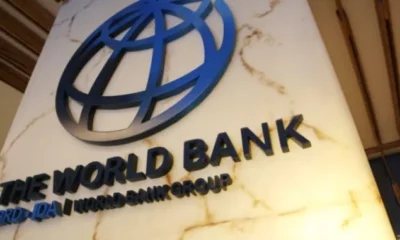

Namibia to receive $138.5 million W’Bank loan
The World Bank has announced that it has granted a $138.5 million loan to assist Namibia in strengthening its transmission...


Nigeria to ban naira from crypto trading platforms
The Securities and Exchange Commission of Nigeria plans to delist the country’s currency, Naira, from all peer-to-peer cryptocurrency platforms to...
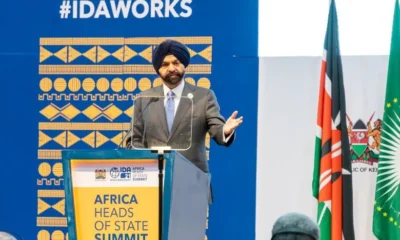

In 64 years, how has IDA reduced poverty in Africa? By Tee Ngugi
The name of the organisation is as opaque as a name can get: World Bank’s International Development Association (IDA). I...


Cricket: Bangladesh defeats Zimbabwe by nine wickets to seal T20 series
Bangladesh on Tuesday overcame Zimbabwe by nine wickets to take a 3-0 lead in the 5-match T20 series with star...


CcHub selects 12 Nigerian startups for 2nd Mastercard Foundation EdTech cohort
Co-creation Hub (CcHub) has selected 12 Nigerian innovative ed-tech startups to join the second cohort of its Mastercard Foundation EdTech...
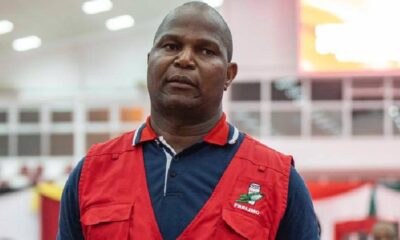

Mozambique: Ruling FRELIMO announces Chapo as presidential candidate
Daniel Chapo has announced that he will run for president in the October election on behalf of the ruling FRELIMO...


Nigeria reduces electricity sale to foreign customers to boost domestic supply
In a move aimed at increasing local supply, Nigeria’s power regulator has directed the grid operator to reduce supplies to...


Lack of awareness on Cyber Security Act persists, prompting calls for enhanced sensitization in Kasama
Despite the enactment and implementation of the Cybersecurity Act, a segment of society in Northern Province’s Kasama District remains unaware...
Trending
-

 Sports2 days ago
Sports2 days agoChelsea offers Lukaku plus cash to Napoli for Osimhen
-
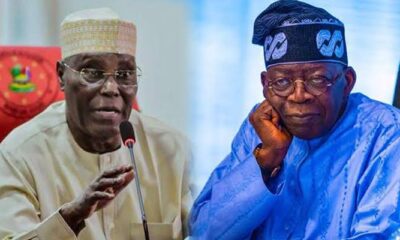
 Metro2 days ago
Metro2 days agoNigeria: Atiku alleges Tinubu’s son, surrogates on board of firm awarded lucrative coastal highway contract
-

 Metro22 hours ago
Metro22 hours agoNigeria not considering permitting foreign military bases— Information Minister
-
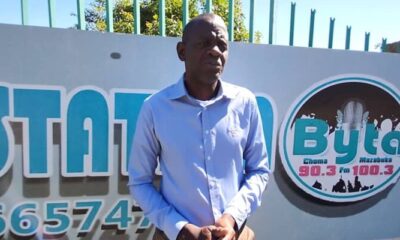
 Metro2 days ago
Metro2 days agoMedia manager identifies bureaucratic bottlenecks as hindering access to public information


